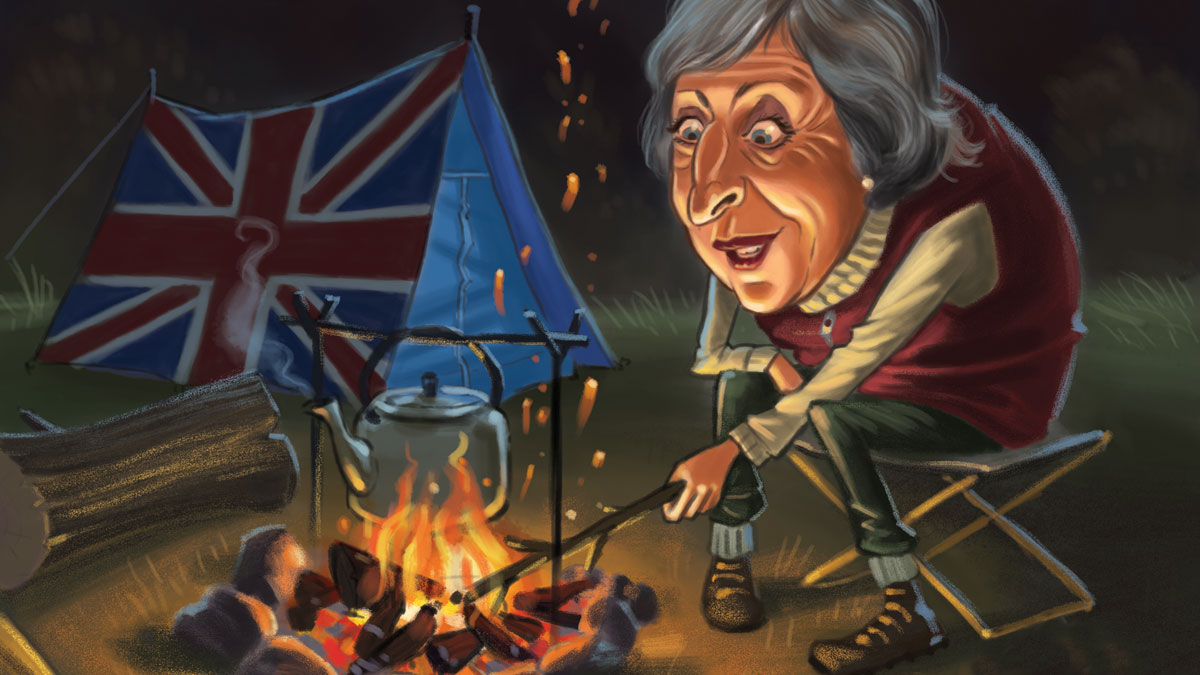
This week in MoneyWeek, we look at the direction the new prime minister could take the country, the potential benefits of “People’s QE”, and how to cut your losses and bank your winners.
On top of that, we have share tips, personal finance, and news and views from the markets around the world. Subscribe now and you’ll get the magazine, the smartphone app, and full access to the website. Why not take out a subscription now?
Where next for Britain?
Now that much of the fuss from the EU referendum has died down and the Conservative Party has sorted out between themselves the little matter of who would run the country, it’s down to business. And, despite there not having been an election, we’re likely to see a change in the country’s economic direction.
“May has made it very clear that she has no plans to achieve a budget surplus by 2020”, says John Stepek in this week’s cover story. “In other words, fiscal policy – government spending – will be looser.”
Until now, the “heavy lifting” has been done by the Bank of England and its quantitative easing programme. That’s not worked out too well so far. So we could see the government abandoning its austerity programme and start spending. One possibility is more spending on infrastructure, “perhaps backed by government guarantees”, says John – possibly including “a commitment to a national house-building programme”.
May is also likely to pitch the Tories as “the party for those who feel they’ve been left out”, says John. Not, I think it’s fair to say, the position most of the public traditionally perceives them as occupying. But that could be “a warning sign to the better off”, says John – for example pensioners and buy-to-let landlords.
But with the prospect of all this loose money and government spending, “it’s hard to paint a gloomy picture for equity markets”, says John (though the same is almost certainly not true for bonds). We pick some of the best stocks to take advantage. Find out what they are by take out a subscription now.
QE for the people
This week, Merryn Somerset Webb talks to economist Professor Steve Keen.
Professor Keen, it must be said, isn’t your conventional economist. “Conventional economists don’t get quite what a big deal credit is”, he says. But understanding that is vital. “If you understood that, then you would have seen the financial crisis coming.”
Inevitably, they talk about Brexit. But, says Keen, “the UK economy is a mess, Brexit or no Brexit”. While we might think of ourselves as a “post-industrial” society, that’s not something we should aspire to be – the only true post-industrial society is one of “hunting and gathering”.
So how can we nurse the economy back to health? Certainly not with conventional QE, which, says Keen, has been “a classic stuff up”. That has failed to stimulate demand because it all went to the wrong people. “If you really wanted to stimulate demand”, he says, give money not to those who already have it but to everyone, via “People’s QE”.
Find out exactly what he means in take out a subscription now.
How to know when enough is enough
One of the best-known maxims in investing is to “cut your losers and run your winners”, says Matthew Partridge. It makes a lot of sense, of course. But it is easier said than done. “We tend to be too keen to take profits”, says Matthew, “and too reluctant to crystallise losses.”
One way of making sure you don’t lose your shirt if the wind turns against you is by setting stop losses. Specify a price, and if the value of your share falls below it, it automatically gets sold. But how does it work, and how to you know where to set them?
Matthew explains it all in the magazine. take out a subscription now.
Challenger banks, star fund managers and Swiss watches
Elsewhere in the magazine, Sarah Moore looks at “challenger banks” – new entrants to the market attempting to “fill the gaps” left by the big high-street names. Since we voted to leave the EU, their shares have slid dramatically. Is that “a sign to steer clear”, asks Sarah, “or is it time to buy?”
On her funds page, she looks at the phenomenon of “star” fund managers – should you buy in to the concept and pick a fund run by a well-known name, or one run by multiple managers?
Alex Williams this week delves into the world of Swiss watches. It’s under threat from all sides, as people ditch precision timepieces for smartphones and gadgets such as the Apple Watch.
“Swatch is the world’s biggest watchmaker and a barometer for the industry”, says Alex. Analysts have been keeping an eye on them for a while, and so were expecting bad news. But “the market has been taken aback by the speed of the decline”, he says.
All that, plus all the usual columnists and features including Matthew Lynn’s City View and Simon Wilson’s investment briefing, plus pensions and five pages of property, travel toys and wine. Sign up now, take out a subscription now.